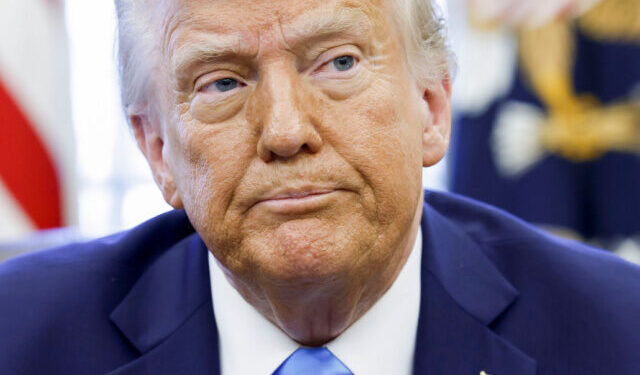Yet another federal judge has stepped in to block a key part of one of President Donald Trump’s executive orders—this time taking aim at his effort to cut off taxpayer funding for radical diversity, equity, and inclusion (DEI) programs.
Judge Matthew F. Kennelly of the U.S. District Court for the Northern District of Illinois issued a ruling Thursday in favor of a Chicago-based nonprofit, Chicago Women in Trades (CWIT), which receives nearly half of its budget from federal grants. The organization claims that Trump’s order to end DEI-related federal contracts is an unconstitutional “coercive threat.”
President Trump has made it clear that DEI programs—which prioritize racial and gender quotas over merit—have no place in taxpayer-funded initiatives. In January, he signed Executive Order 1415, titled “Ending Radical and Wasteful Government DEI Programs and Preferencing,” and Executive Order 14173, “Ending Illegal Discrimination and Restoring Merit-Based Opportunity.”
These orders sought to defund DEI programs within the federal government, as well as prevent taxpayer dollars from flowing to external organizations promoting DEI. The Department of Labor (DOL) quickly moved to enforce the orders, notifying grant recipients—including CWIT—that they must immediately cease all DEI-related activities. The department also indicated that it would review and possibly terminate all active DEI-related federal grants.
In response, CWIT filed a lawsuit in February, arguing that Trump’s orders violated its First Amendment rights and created a chilling effect on its ability to promote “diversity, equity, and inclusion in the skilled trades industry.”
Judge Kennelly, a Clinton appointee, agreed—at least temporarily. In his ruling, he suggested that the executive orders were “likely a coercive threat” and issued a temporary restraining order allowing DEI grant recipients to continue operating until a more permanent decision is made. A hearing for a longer-term injunction is scheduled for April 10.
For now, Kennelly’s decision prevents the Trump administration from cutting off funds for organizations like CWIT, though it still allows the administration to deny new “equity-related grants.”
This ruling is just the latest in a growing legal war against Trump’s executive actions. In the same week:
- U.S. District Judge Theodore Chuang of Maryland, a longtime Democrat activist, ruled that Trump’s decision to cut DEI-related funding from the U.S. Agency for International Development (USAID) was likely unconstitutional.
- U.S. District Judge Ana Reyes in Washington, D.C., blocked Trump’s Pentagon from enforcing its policy barring transgender troops from military service without a waiver.
- D.C. Chief Judge James Boasberg ruled that illegal migrants affiliated with the Tren de Aragua gang must be given the right to appeal deportations under Trump’s use of the 1798 Alien Enemies Act.
The left-wing judicial machine is in overdrive, throwing up roadblocks to nearly every Trump policy designed to restore fairness, end radical ideology in government, and put Americans first. With the 2024 election in full swing, these legal battles are a preview of the fight ahead. Will the courts continue to overrule Trump’s efforts to end the DEI agenda, or will the Supreme Court ultimately have the final say?
One thing is clear: the fight to stop taxpayer-funded radicalism is far from over.




















